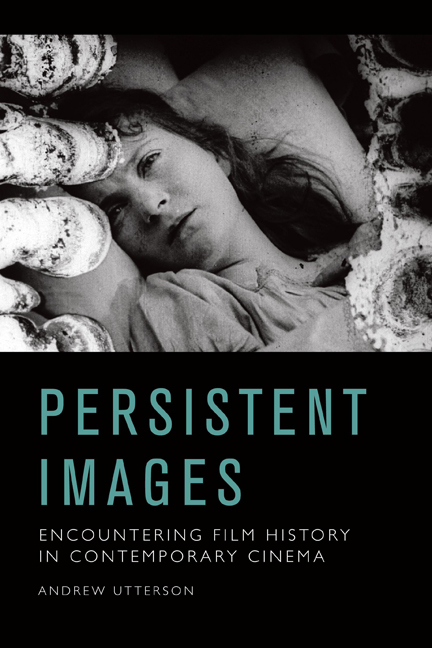Book contents
- Frontmatter
- Contents
- List of Figures
- Acknowledgements
- Introduction
- 1 Media Archaeology and the Memory of a Medium: Dawson City: Frozen Time
- 2 A Drone’s-Eye View of History: Francofonia
- 3 The Movie Theatre as Haunted Space: Shirin and 70×70
- 4 Recalling the Past Lives of Cinema: Uncle Boonmee Who Can Recall His Past Lives
- 5 3D Images at the Edge of History: Goodbye to Language and The Three Disasters
- 6 Voyaging in Deep Time: Voyage of Time: The IMAX Experience
- Notes
- Bibliography
- Index
4 - Recalling the Past Lives of Cinema: Uncle Boonmee Who Can Recall His Past Lives
Published online by Cambridge University Press: 26 September 2020
- Frontmatter
- Contents
- List of Figures
- Acknowledgements
- Introduction
- 1 Media Archaeology and the Memory of a Medium: Dawson City: Frozen Time
- 2 A Drone’s-Eye View of History: Francofonia
- 3 The Movie Theatre as Haunted Space: Shirin and 70×70
- 4 Recalling the Past Lives of Cinema: Uncle Boonmee Who Can Recall His Past Lives
- 5 3D Images at the Edge of History: Goodbye to Language and The Three Disasters
- 6 Voyaging in Deep Time: Voyage of Time: The IMAX Experience
- Notes
- Bibliography
- Index
Summary
Chapter 3 focused on the site of the movie theatre and its particular apparatus and associated cinematic experience. To develop the idea further, this chapter considers more closely one specific element of the evolving cinematic apparatus: photochemical film or its absence. The material base of celluloid of one format or gauge or another has been replaced by digital formats to the point at which this transition is now effectively complete. As a result, film has assumed a niche or specialist status, restricted to gallery practice, for example, or specific use as a pastiche or other marker of film historical practices and periods.
In this contemporary historical and cultural context in which the memory, uses or other evocation of film persist, a degree of ontological and historical ambiguity has arisen, a symbolic vestige that continues to find resonance and meaning, even in – or perhaps because of – an increasingly immaterial cinematic present. The historicity and signifiers associated with this medium have come to represent the past, a materiality out of place, replete with associations of finitude, obsolescence and even death.
With regard to how we might progressively historicise these shifts, and in the process, complicate proclamations of demise and the sense of loss that has accompanied the erosion of the primacy of film, we should consider not just the significance of this shift with regard to material practices (noting an absence), but also the more intangible expressions of a contemporary material– immaterial slippage.
In fact, in terms of the wider lens of a macro-historical perspective, moments of rupture are implicit in an existential historiography in which cycles of change are considered essential and recurrent, rather than an existential threat that is absolute, to be resisted or otherwise lamented. Technological change, such as the film-to-digital transition of recent years, is often greeted with just such a reactionary response.
It is precisely this notion of meta- or macro-historical cycles, of inevitable and necessary transition and transformation, that comes to the fore in Apichatpong Weerasethakul's Uncle Boonmee Who Can Recall His Past Lives (Loong Boonmee raleuk chat, 2010), which is presented here as one particular case study in the persistence of photochemical film, even if in the form of a phantasm.
- Type
- Chapter
- Information
- Persistent ImagesEncountering Film History in Contemporary Cinema, pp. 72 - 90Publisher: Edinburgh University PressPrint publication year: 2020



